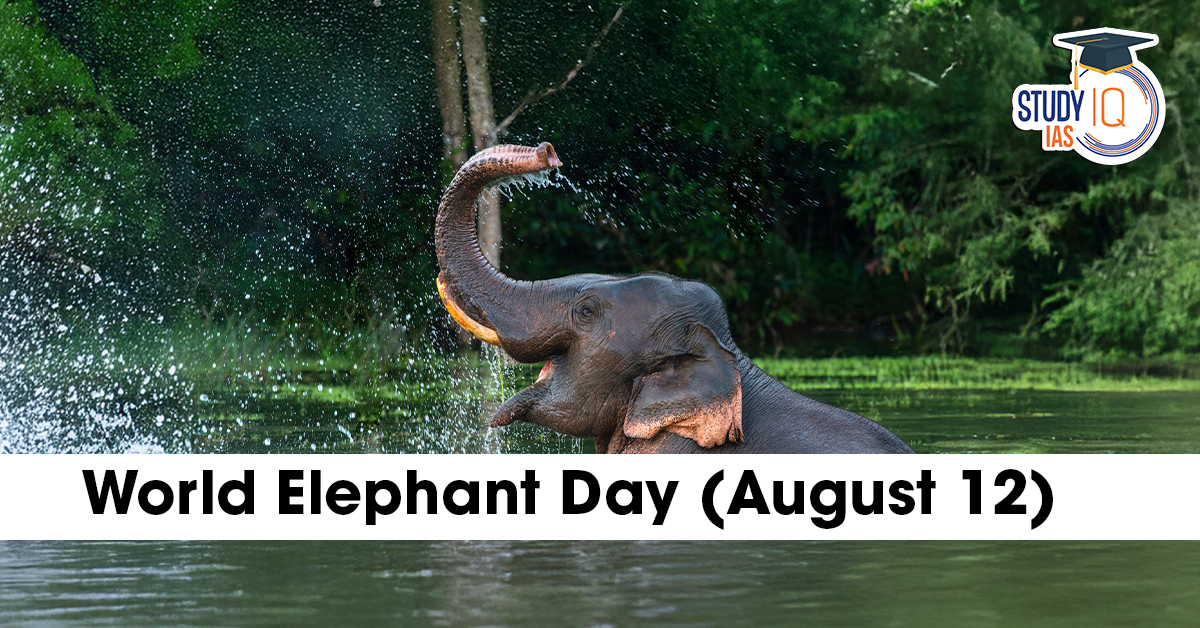Table of Contents
World Elephant Day is celebrated every year on August 12 to raise global awareness about the protection and preservation of elephants. In 2025, this important day will be observed on Tuesday, August 12, uniting wildlife enthusiasts, conservationists, governments, and local communities in the mission to safeguard these gentle giants from the threats of poaching, habitat loss, and human-elephant conflict.
History of World Elephant Day
World Elephant Day was first observed in 2012, initiated by Canadian filmmakers Patricia Sims and Michael Clark, along with the Elephant Reintroduction Foundation of Thailand. Since its inception, the day has grown into an internationally recognized event that focuses on the urgent need to protect African and Asian elephants.
The day was created to shed light on issues such as:
-
Illegal ivory trade and poaching
-
Loss of natural habitat due to deforestation and human encroachment
-
Mistreatment of elephants in captivity
-
Climate change impacting food and water sources
Significance of World Elephant Day 2025
Elephants play a vital role in maintaining the ecological balance of forests and grasslands. Known as “ecosystem engineers”, they help disperse seeds, create water holes, and maintain biodiversity. However, both African and Asian elephant populations have been declining rapidly due to human activities.
-
Asian Elephants: Listed as Endangered on the IUCN Red List, with an estimated population of 40,000–50,000.
-
African Elephants: Classified into two species — the African Savanna Elephant (Endangered) and African Forest Elephant (Critically Endangered).
World Elephant Day 2025 highlights the urgency of coordinated conservation actions, stricter anti-poaching laws, and community-based initiatives to ensure these species survive for future generations.
Theme of World Elephant Day 2025
While the official theme for 2025 is yet to be announced, past themes have focused on ending ivory trade, improving habitat protection, and promoting ethical tourism. The 2025 theme is expected to align with sustainable coexistence between humans and elephants, stressing the importance of reducing human-wildlife conflict and restoring elephant corridors.
How World Elephant Day 2025 is Celebrated Globally
-
Awareness Campaigns – NGOs, wildlife reserves, and conservation organizations conduct webinars, school programs, and social media drives to educate people about elephant protection.
-
Wildlife Documentaries & Exhibitions – Special screenings and photo exhibitions showcase the life, behavior, and struggles of elephants in the wild.
-
Tree Plantation & Habitat Restoration – Environmental groups and local communities engage in activities that help restore elephant habitats.
-
Anti-Poaching Drives – Governments and wildlife agencies intensify anti-poaching patrols and awareness about the illegality of ivory trade.
-
Ethical Tourism Promotion – Travel companies encourage visiting sanctuaries that follow ethical standards, avoiding places that exploit elephants for entertainment.
How to Contribute to Elephant Conservation
-
Avoid Ivory Products: Refuse to buy or support products made from ivory.
-
Support Elephant Sanctuaries: Donate to or volunteer with legitimate rescue and rehabilitation centers.
-
Spread Awareness: Use social media to educate others on the importance of elephant conservation.
-
Promote Wildlife-Friendly Policies: Advocate for government policies that protect wildlife corridors and strengthen anti-poaching laws.
-
Reduce Human-Elephant Conflict: Support community initiatives that use eco-friendly methods to prevent crop damage by elephants without harming them.
Why World Elephant Day Matters in 2025
The year 2025 marks over a decade since the launch of World Elephant Day, and the conservation challenges have only grown more complex. With increasing habitat fragmentation, climate change impacts, and illegal wildlife trade, it is more important than ever to strengthen global collaboration.
World Elephant Day is not just about celebrating these majestic creatures — it’s a call to action for everyone to ensure that elephants remain a living, thriving part of our planet’s future.
Conclusion
World Elephant Day 2025 on August 12 serves as a powerful reminder that the fate of elephants lies in our hands. By uniting communities, governments, and conservationists worldwide, we can work towards a future where elephants roam freely, safe from the threats of poaching, habitat loss, and exploitation. Protecting elephants is not just about saving a species — it’s about preserving the delicate balance of our planet’s ecosystems.


 Promotion of Equity in Higher Education ...
Promotion of Equity in Higher Education ...
 Bhairav Light Commando Battalion: India�...
Bhairav Light Commando Battalion: India�...
 India Assumes Chairship of International...
India Assumes Chairship of International...

























